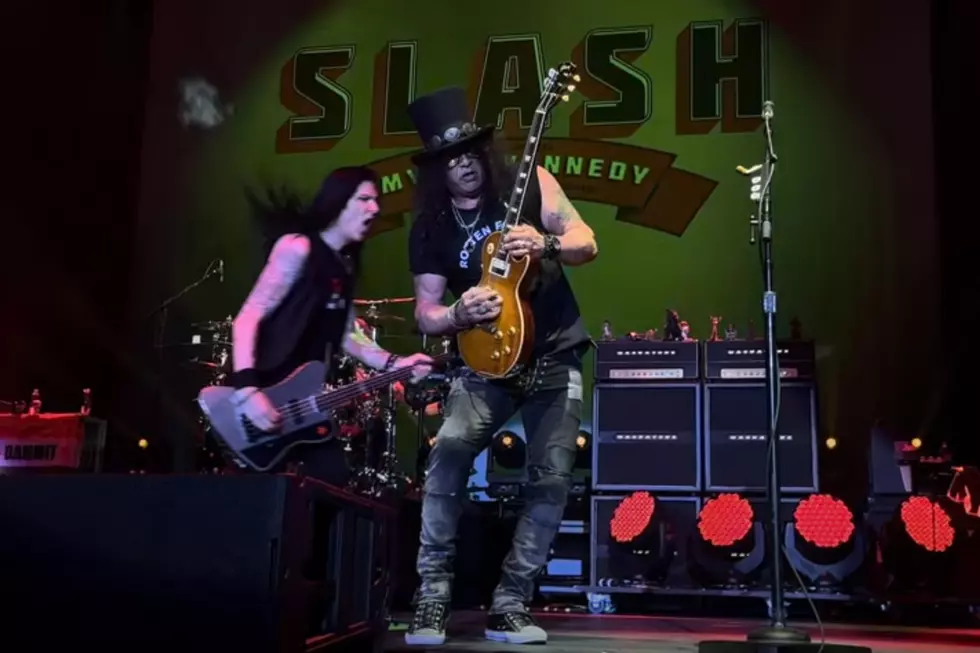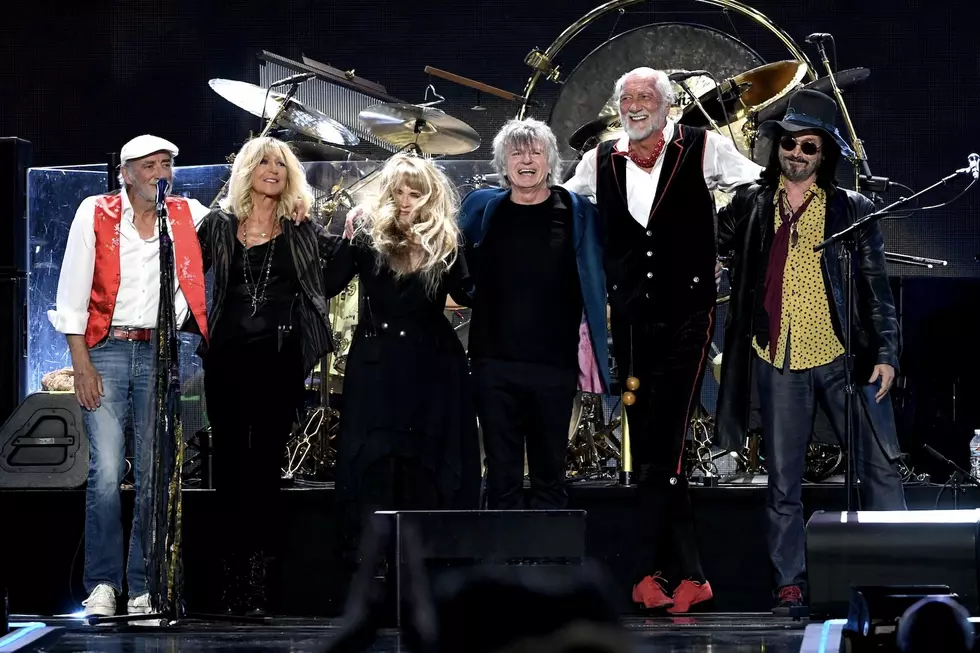
Why Robert Palmer Kept Mixing Things Up With ‘Secrets’
Five years into his solo career, Robert Palmer had already covered more musical ground than many artists travel in a lifetime. He was only getting started, as Palmer demonstrated with the June 1979 release of his fifth album, Secrets.
After leaving the unjustly overlooked R&B group Vinegar Joe in 1974, Palmer struck out on his own with Sneakin' Sally Through the Alley, a funk-drenched LP cut with members of the Meters and Lowell George of Little Feat. That sound spilled over into the albums that immediately followed, but Palmer was clearly restless.
Subsequent efforts, from 1975's Pressure Drop through 1976's Some People Can Do What They Like and 1978's Double Fun, found him incorporating everything from reggae to hard rock and disco. It was a musically expansive approach that might have confounded listeners hoping for a sequel to Sneakin' Sally Through the Alley, but one that befitted a peripatetic lifestyle which saw the Palmer family moving from the U.K. to New York to the Bahamas.
In that context, Secrets came as something of a shock – not because it traveled deeper into new territory, but because it boasted a comparatively narrow focus: Palmer bore down on the rock side of his sound through cuts like his covers of Moon Martin's "Bad Case of Loving You (Doctor, Doctor)" and Todd Rundgren's "Can We Still Be Friends."
Both of those songs ended up becoming signature Palmer singles, but he insisted any commercial potential was mostly an accident. As he warned during a 1976 NME interview, "I believe that my music is just about feelings and the style is just a side effect."
As he grumbled during a later conversation with the magazine: "I get really bored with style. I'm sick to death of it. Just style as a commodity, whether it's disco or heavy metal or whatever the current trend is. I mean, I'm just really bored with it, always have been. For instance, I used to do a lot of reggae tunes – or things in that area – and now if I do them people come up to me and say, 'You're jumping on the ska bandwagon.' I just get sick of it."
Palmer also, as he went on to explain, enjoyed making albums that stood apart from anyone's preconceived notions.
"I don't want to make an album where it's presumed I'm into something. I mean, I haven't got a band, I never have had," Palmer explained. "I've got to the point where I just get on with it and the content of what I put on the records is determined from what I learn from the audience, from what works live, from what I want to hear when I go to a club or what I'd like to play when I get home. I'm just trying to include all those different things and mix it up, because otherwise you end up with, what do they call it, a 'concept' album or something."
Much as he might have appreciated the fact that he was able to count on his own growing group of fans, Palmer's eclectic style was also partially motivated by an altogether less loyal form of listening.
Watch Robert Palmer Perform 'Bad Case of Loving You'
"I'm only interested in, I only like songs," he pointed out. "There's no groups or singers that I like at all. I like songs by a lot of different people, but I'm certainly not a fan of anybody. I make up cassettes all the time – to take on the road with me – a song from this album, a song from that album. That's the way I listen to music; it's like one of those K Tel things, it's from all over. I listen to Fred Astaire, I listen to African folk music, I listen to Talking Heads."
At certain points in his career, that song-first focus tended to hamper Palmer's career as much as it helped it. Although forward-thinking sides like his 1980 cover of Gary Numan's "I Dream of Wires" or his 1983 take on the R&B duo the System's song "You Are In My System" were rarely anything less than warmly received by critics, it made him a hard artist to promote. After 1985's Riptide, produced by Bernard Edwards of Chic, broke Palmer through to multi-platinum mainstream success, left turns like 1990's standards-driven Don't Explain album risked alienating a much broader audience.
With Secrets, however, Palmer kicked off a period of healthy mid-level success that found him knocking out respectably sized hit singles. Following on the Top 20 showing of his Double Fun cut "Every Kinda People," he repeated the feat with "Bad Case of Loving You," and continued nibbling at the airwaves on either side of the Atlantic throughout the early part of the decade.
By the time he joined up with the all-star Chic/Duran Duran mash-up the Power Station in 1984, Palmer had carved out an impressive musical niche for himself without ever really basking in the spotlight – something he didn't seem to mind in the slightest.
"I joined a band because I didn't like school and there's nothing else I'd rather have done. If I really wanted to make money I'd be in real estate," he shrugged in an interview with the Face magazine. "But I'm rich enough. I have a son and daughter, a lovely home, and if I see something I like I can buy it. That's rich enough."
Palmer later insisted that he wasn't "trying to build an audience or create a market or product. I'm trying to make up songs I like to sing and put them on a record and be pleased with the result and say, 'Yeah, I've made the best record I could make this year.' I'll leave it up to someone else to market it."
On that front, Palmer could rightly be satisfied with Secrets. "Of course," he concluded, "It does give me problems. You can't be easily categorized; people tend to concentrate on my appearance and stuff, which is kind of frustrating."
As he'd soon find out thanks to the video-driven image he'd unleash with Riptide, people concentrating on appearance could be even more of a serious annoyance than he had any way of knowing at the time – but in 1979, Palmer's Secrets were still safe.
See Robert Palmer Among Rock's Sexiest Album Covers
More From Ultimate Classic Rock









